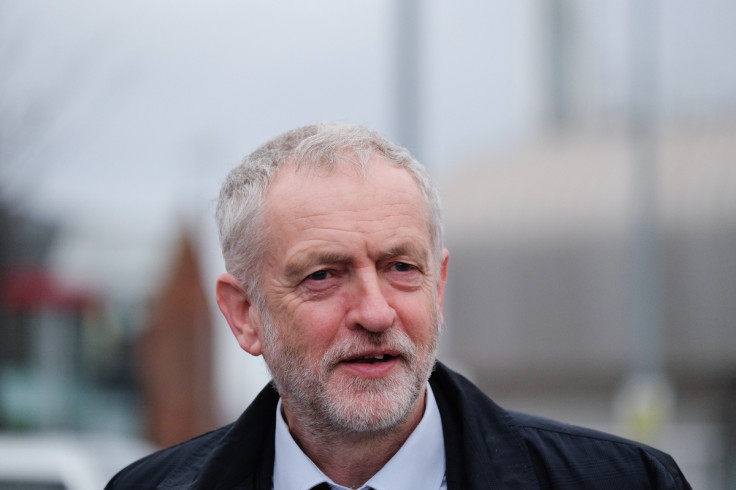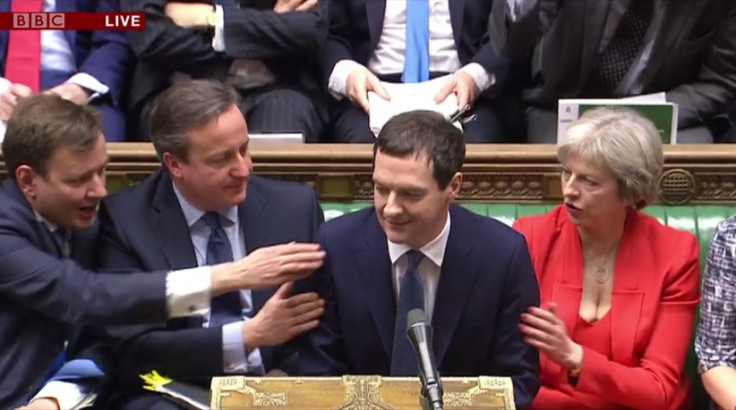Labour must capitalise on this critical change in public mood against the Tories

For Labour supporters, there hasn't been much to smile about in recent months. We've watched helplessly as the Tories pulled a reverse Robin Hood — taking money from where it's needed and handing it over to the wealthy in the form of tax breaks — yet headlines have frequently been dominated by tales of Labour's petty internal wranglings.
Corbyn's leadership has invigorated many party members, but this hasn't seemed to translate into the mainstream popularity needed for electoral success. Those on the right of the party argue the MP for Islington North is scruffy, incompetent and just too left-wing to appeal to swing voters. Many of his supporters contend his anti-austerity message has wider appeal, but he's been stymied by backstabbing from within his own party.
Unsurprisingly, Corbyn's backers have seized on a post-Budget YouGov poll showing Labour taking a one point lead over the Conservatives as evidence they were right all along. Though this seems somewhat premature — one poll isn't evidence of a sustained trend and Miliband was much further ahead this time five years ago — there are valid reasons to feel optimistic.

For anyone who agrees in essence with Corbyn's anti-austerity stance (even if they're not entirely convinced of his aptitude as a leader) it's been disheartening to find that voters frequently seem to care very little about cuts to benefits and services that don't personally affect them.
The evil genius of George Osborne is that his austerity measures have often narrowly targeted certain stigmatised or vulnerable groups, so the majority of the population don't feel their full brunt.
Until recently, tax credits seemed to be the one exception, with public opposition forcing the government into an embarrassing U-turn. It probably helped that it's difficult to shoehorn an exclusively in-work benefit into the crude "strivers vs. scroungers" narrative. However, it now seems the tide may finally be turning.
The evil genius of George Osborne is that his austerity measures have often narrowly targeted certain stigmatised or vulnerable groups, so the majority of the population hasn't felt their full brunt.
Osborne's school bully strategy of picking on those least able to defend themselves worked for a while, but there's a limit to what the public is prepared to tolerate. Planned cuts to the Personal Independence Payment (PIP)— which helps disabled people with daily living difficulties such as washing, using the bathroom and preparing meals — have been met with widespread opprobrium. A Times/YouGov poll found that only 13% of the population think the cuts are a good idea – even 59% of Tory voters say it's wrong.
Cabinet minister Nicky Morgan seemed to hint that the government might scrap the PIP cuts, describing the plan as a "suggestion" that was "under consultation". However, this was denied by sources close to Work and Pensions Secretary Iain Duncan Smith, who said her statements don't "tally with what we and Downing Street are saying". A significant number of Conservative backbenchers have also signed a letter to Osborne raising concerns about the move.
Even before Wednesday's Budget, approval of government cuts was the lowest it had been in years. The net percentage of people who think the cuts are fair is -38, despite the fact that less than only 42% of people say they're personally affected. Opposition isn't simply motivated by self-interest — voters are becoming increasingly concerned that less-fortunate members of society are being treated cruelly.
As Tory popularity slips and the party deals with its own internal conflicts in the run-up to the EU referendum, Corbyn's Labour could become an increasingly attractive option to undecided voters.
This juncture feels like a critical change in public mood, one that Labour can potentially capitalise on — if all factions are prepared to work together. The message they've been pushing for a while — that the Conservatives are the same "nasty party" they always have been — is gaining currency. As Tory popularity slips and the party deals with its own internal conflicts in the run-up to the EU referendum, Corbyn's Labour could and perhaps should become an increasingly attractive option to undecided voters.
Shadow chancellor John McDonnell has been working hard to prove his economic literacy in recent weeks, an enormous step in the right direction. What's needed now is a level of party unity. This isn't to say that dissent should be wiped out entirely, the centre-left just need to give Corbyn a fair chance. As long as the majority of members back him there's no viable alternative anyway and, electorally speaking, last night's YouGov poll was a sign that all may not be lost.
© Copyright IBTimes 2025. All rights reserved.





















